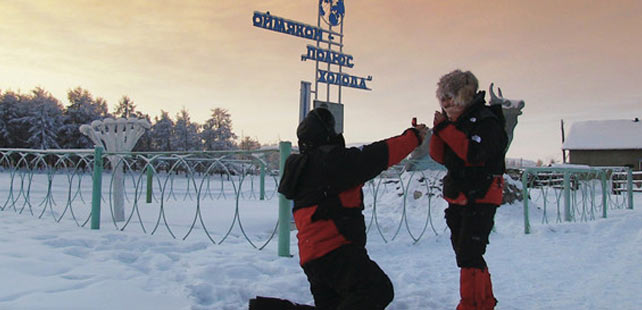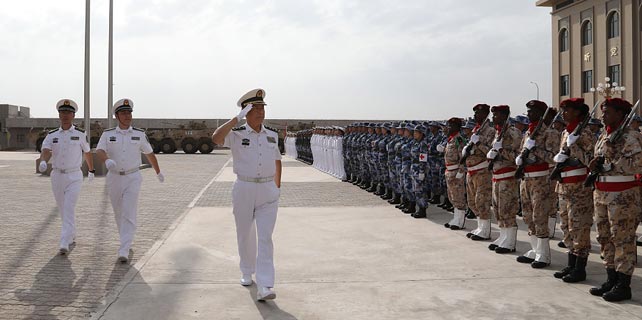China a reliable, all-weather good neighbor of Nepal, says ambassador
We have to overcome mental barrier for connecting Nepalese economy with that of Chinese. We have to learn and acquire expertise from Chinese experience of building rail and road network in high altitude and difficult terrain. We have more than 2,000 years of history of intercourses across the Himalayas for civilizational exchanges and in search of better life. In the modern period of unprecedented development in transport and communication technology a mountain can never be a barrier for intensified relations but rather will be a place of glamour and attractive touristic spot itself.
Exchanges of intellectuals and artists from Kathmandu and Lumbini, birthplace of Shakyamuni Buddha, to China and from Xian and other parts of China to Nepal had taken place and opened up the avenues for cooperation since 2,000 years of recorded history. Keyrung remained uninterrupted pass in last 2,000 years towards north and south of the Himalayas. We have to explore the opportunities therein now. China converted myth into reality in 2006 by opening Qinghai-Lhasa railway, and now that railway line has reached to Shigatse, some 500 km away from Nepal. We need a strong determination to extend that railway to Nepal and upgrade infrastructure across the Himalayas for peace, development and stability in the region and beyond. Achieving that goal is a common challenge.
At this point of time there is a need to integrate economies through network of railways, roads, air links, communications and transmission lines across the Himalayas to reap benefits by both the countries.
We have yet another challenge. It is related to attracting Chinese investment in Nepal. Some projects are of multi-year nature and the investors may have to wait for one or two decades for the complete returns. Some Chinese investors have questions about the continuity of policy; I mean, they are seeking predictability and consistency in policies. As government change occurred so frequently in Nepal, we have to convey the message to the potential investors that all major political forces in Nepal have explicit policy of promoting foreign investment for socio-economic development. Therefore we have to assure the investors that there will be continuity in policy whoever comes in political power. No differences are there among major political forces with regard to taking benefit from China's ability and efficiency.
China is a big tourist market now as it is a country that sends the largest number of tourists overseas. We are a neighbor, one of the most beautiful countries in the world from tourism perspective and linked with land and we are the only one which has uninterrupted exchanges across the Himalaya with China since the last two millennia. But, despite being a so close neighbor, having so historical network of contacts and present context of millions of Chinese going abroad as tourists, we have not been able to bring in sufficient number of Chinese tourists and thus expand our tourism market as expected. We have challenges to make our tourism infrastructure qualitative and transform tourism products and services as per the needs of the Chinese tourists. By making these developments in a fast manner, we have to make all levels of Chinese people know that Nepal is a safe and most beautiful tourist destination. For this we need a great effort and this also constitute a part of our challenge.
Q: You hinted about Chinese investment in Nepal and facility connectivity. In this context, Nepal has recently signed a MoU with China on BRI (Belt & Road Initiative). What could be priority areas of cooperation for both neighbors to reap benefits from the BRI?
A: It is tourism that we can reap benefit immediately. As soon as more and more tourists from China visit Nepal, our economy gears up quickly. And this also gives an instant opportunity for the Chinese to intermingle with the Nepalese society, understand them, expand people to people ties, get known about Nepal's culture and geography, and explore the economic opportunities in Nepal together with Nepal friends.
Our priorities should include the improvement in connectivity such as railways, roadways, airways and communications between China and Nepal. For making these happen we have to make exchanges of high level political visits. Such visits create stronger basis of trust and understanding for all rounds of cooperation.
The third priority is investment from China to derive mutual benefit. China has sufficient investable capital, ability and technology. Nepali economy can be made dynamic by injecting in the investment, technology and upgrading human capabilities. With the WB's projection of 7.5 per cent growth in the current fiscal year, Nepal is entering a phase of rapid economic transformation that requires fund and human capabilities which China can fulfill.
The fourth is cultural exchanges. This is important as it boosts relations at the people's level, enhances trust and confidence between each other creating conditions for mutually beneficial activities rather than taking short term advantage at the cost of the other's ignorance.
If we talk about specific projects, the thing we have to immediately do is railway, linking Nepal with Chinese rail network, upgrading roads and getting transport transit facility via Chinese territory.
















